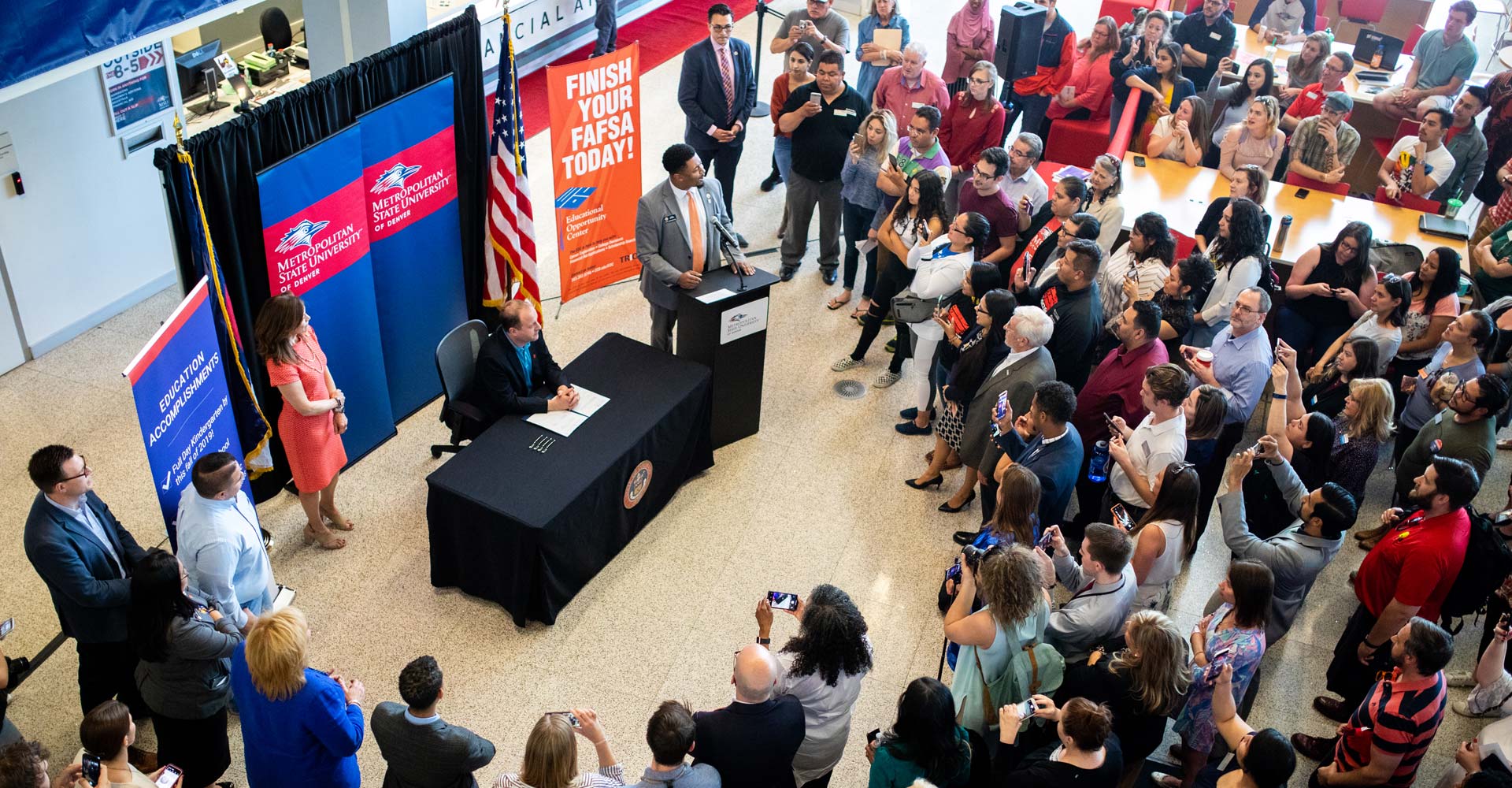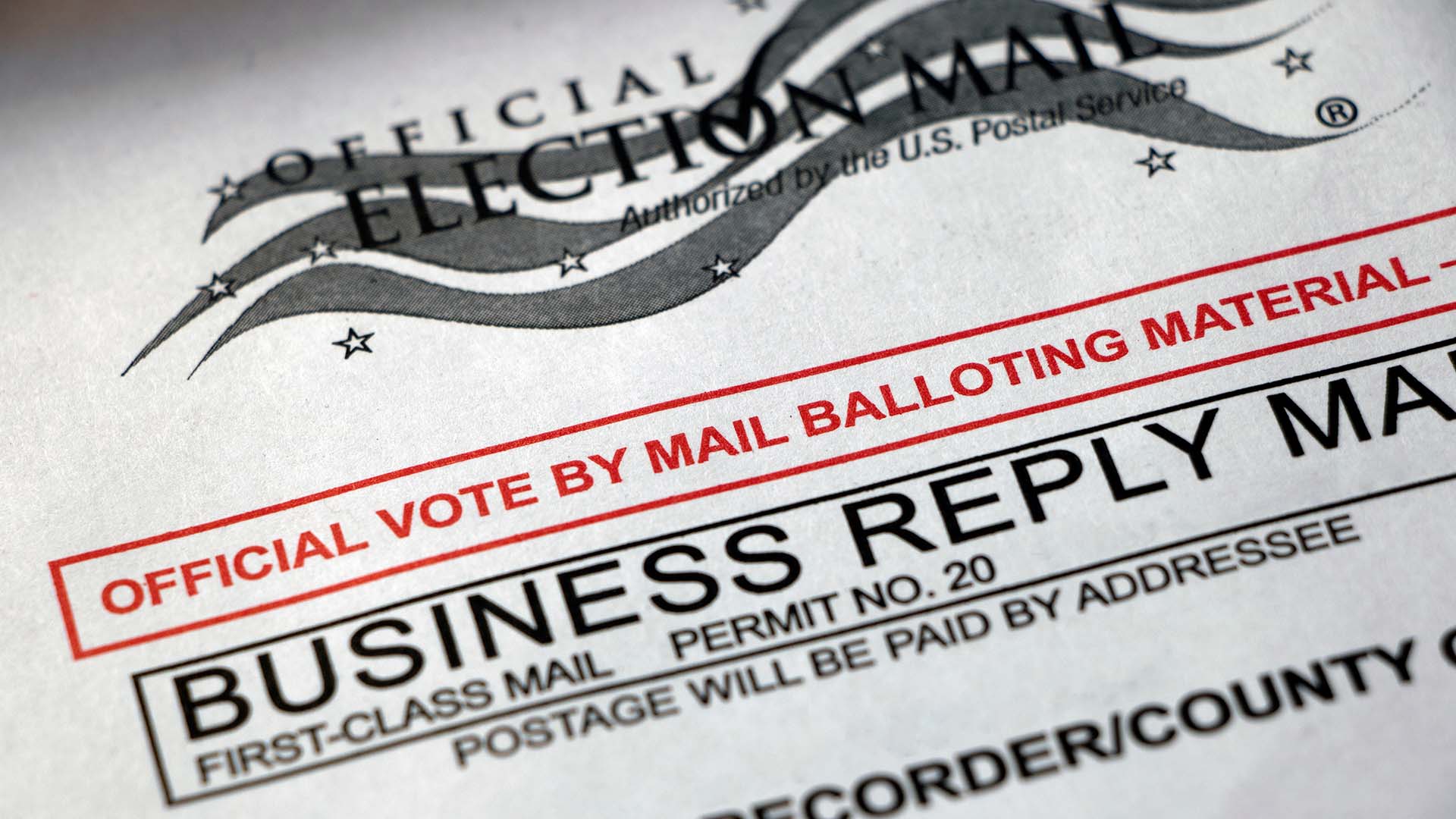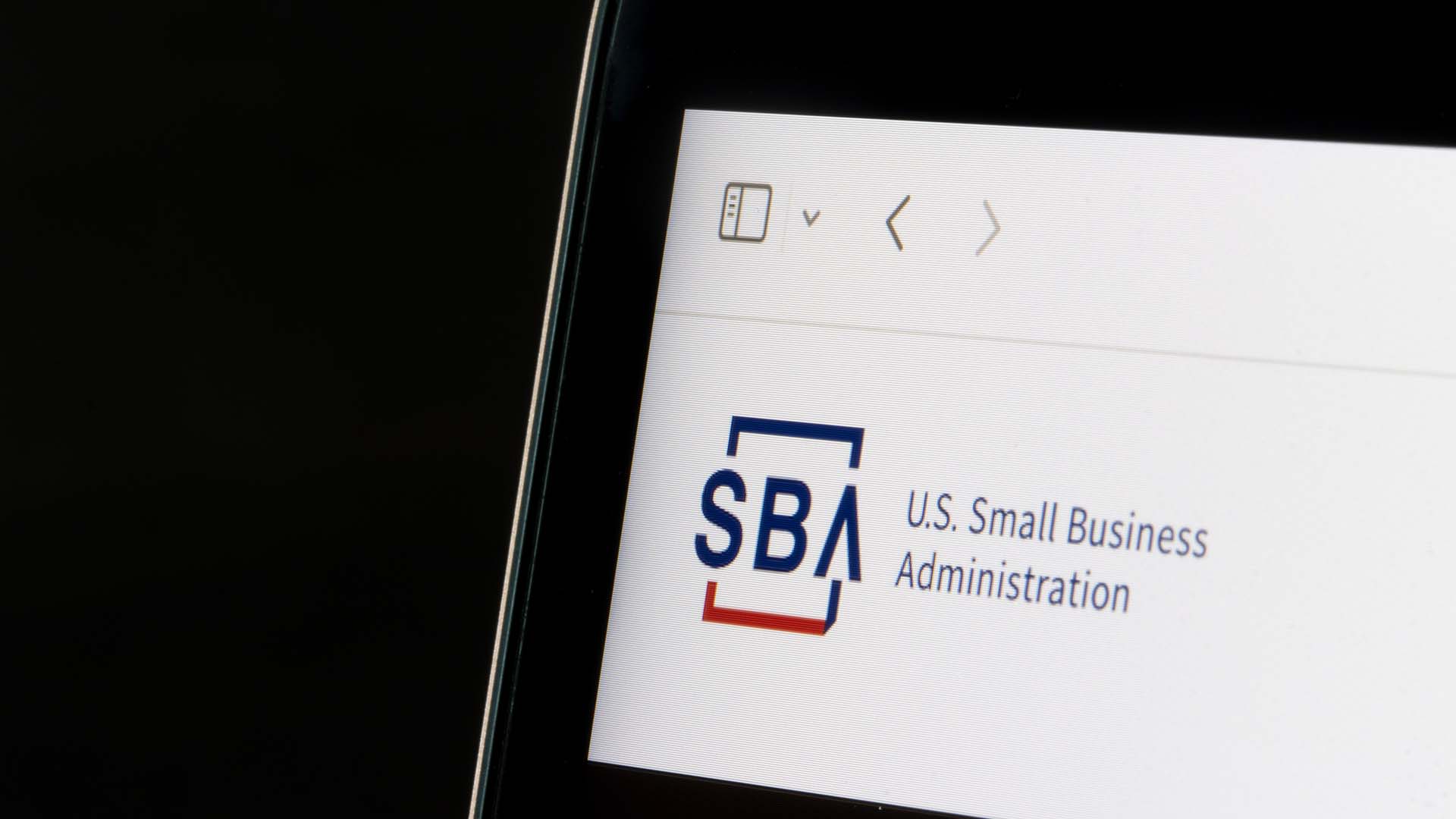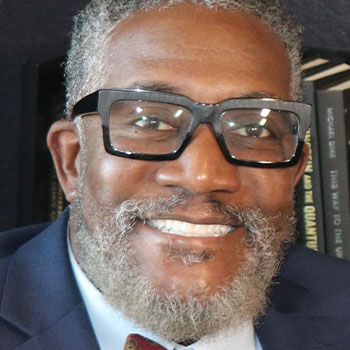New Colorado law extends state financial aid to Dreamers
Qualified undocumented students pay in-state tuition. Now, they’re eligible to receive state financial aid.

Gov. Jared Polis on May 13 signed two bills aimed at increasing access to higher education for Coloradans — including Dreamers.
The first bill signed into law, HB19-1187, appropriates $250,000 to have counselors work with high school students and families to complete the Free Application for Federal Student Aid (FAFSA). The second, HB19-1196, extends to eligible undocumented students access to state financial aid.
Polis signed the bills at Metropolitan State University of Denver’s Jordan Student Success Building, where in 2013 former Gov. John Hickenlooper signed the Advancing Students for a Stronger Economy Tomorrow (ASSET) bill. That law makes in-state tuition at state colleges and universities available to all students, regardless of immigration status, who graduate from high school in Colorado after attending for at least three years.
It was special to hold the signing ceremony for HB19-1196 at MSU Denver because it was the first university in the state to allow undocumented residents in-state tuition, Polis said.
“For those students with DACA status, who came to this country and grew up as aspiring Americans… until the federal government fixes the oversight, we’ll do our best to honor their status as de facto Americans by making sure they have access to state financial aid to attend a university,” Polis said.
The respective bills address multiple issues facing Colorado students requiring financial aid to pursue higher education.
ASSET allowed eligible students to pay in-state tuition, but they were not fully eligible to receive state financial aid. Sponsored by Rep. Serena Gonzales-Gutierrez (D-Denver) and Sen. Dominick Moreno (D-Adams County), HB19-1196 extends to those eligible undocumented students full access to state financial aid.
Meanwhile, Colorado is among the worst in the nation for FAFSA completion rates, and in 2015-16 the state’s students left approximately $50 million in unclaimed federal funds on the table, according to HB19-1187 sponsor Sen. Jeff Bridges (D-Greenwood Village).
“A lot of students don’t even realize what they’re leaving on the table or that a college education is within their grasp,” Polis said. “This is a first step in making sure everyone in Colorado receives access to all the federal funding for higher education that they’re eligible for.”
As he signed the bills, the governor noted that MSU Denver’s out-front advocacy for Dreamers was likely a factor in the institution recently achieving federal Hispanic-Serving Institution status.
MSU Denver, which serves more Latino students (5,469) than any other higher education institution in Colorado, was granted HSI status by the U.S. Department of Education on Feb. 19. The status unlocks access to millions of dollars in grant opportunities.
“We are absolutely honored to host this signing, as both of these bills really reflect our shared values of student success,” said MSU Denver President Janine Davidson, Ph.D.
The law extending access to undocumented students will be impactful, said MSU Denver and DACA student Aileen Alvarado. She is studying human services and mental health counseling and works in the University’s Immigrant Services Program office helping those with stories similar to her own transform their lives.
“Growing up as a DACA student, I never thought I’d be able to take part in something this historical,” she said. “I’m glad to help work toward making Colorado a better place for immigrants. I’m so happy to be a part of this.”







